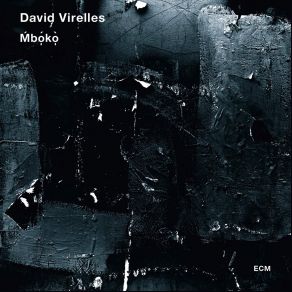Mbókò / Mboko
Download links and information about Mbókò / Mboko by David Virelles. This album was released in 2014 and it belongs to Jazz, Avant Garde Jazz, Latin genres. It contains 10 tracks with total duration of 59:01 minutes.

|
|
|---|---|
| Artist: | David Virelles |
| Release date: | 2014 |
| Genre: | Jazz, Avant Garde Jazz, Latin |
| Tracks: | 10 |
| Duration: | 59:01 |
| Buy it NOW at: | |
| Buy on iTunes $11.99 | |
| Buy on Amazon $11.49 | |
| Buy on Songswave €1.66 | |
Tracks
[Edit]| No. | Title | Length |
|---|---|---|
| 1. | Wind Rose (Antrogofoko mokoirén) | 6:27 |
| 2. | The Scribe (Tratado de Mpegó) | 7:35 |
| 3. | Biankoméko | 4:55 |
| 4. | Antillais (A Quintín Bandera) | 7:09 |
| 5. | Aberisún y Aberiñán | 4:24 |
| 6. | Seven, Through the Divination Horn | 4:48 |
| 7. | Stories Waiting To Be Told | 8:21 |
| 8. | Transmission | 8:27 |
| 9. | The Highest One | 6:16 |
| 10. | Èfé (A María Teresa Vera) | 0:39 |
Details
[Edit]The musical precedent for David Virelles' Mbókò, the Cuban-born, New York-based pianist leader's debut for ECM, can be found on his stellar 2012 Pi Recordings date, Continuum. That set featured the wellspring of folkloric Afro-Cuban ritual music expressed through modern vanguard jazz. The subtitle of this offering is Sacred Music for Piano, Two Basses, Drum Set and Biankoméko Abakuá. The word "Mbókò" translates as "fundament," "sugar cane," and "the voice," not the human one, but sound itself. The Abakuá is a secret religious male initiation society in Cuba whose roots lie in southeastern Nigeria and southwestern Cameroon, who worshiped sound, or "the Voice," as divine. Finally, the biankoméko is a four-drum ensemble, with a metal bell, shakers, and wooden sticks, that acts as the accompaniment for the ritual magic of the Abakuá in its masked performances. It is played here by Cuban folk musician/multi-instrumentalist Román Díaz. He is as important to this music as Virelles; he is the spoke on which the pianist's music turns. Understanding this cultural context is helpful, but not necessary, for enjoyment of what this album offers: rich imagination, discipline, multiple colors and timbres, and striking originality. The two bassists are veterans Thomas Morgan and Robert Hurst, and drummer Marcus Gilmore has established a fine reputation as a session man and as part of Vijay Iyer's trio. The bassists' roles are different here. There is little to no counterpoint or driving guidepost rhythmic statements; instead, they provide complementary rhythmic pulses and drones. Gilmore's drumming makes the beat elastic, like a dancer does. He syncopates but just as often illustrates and underscores the role of Díaz's biankoméko. Virelles plays piano as percussively as he does melodically. On opener "Wind Rose," he and Díaz play in duet, his flat-handed chord voicings balanced by short, middle-register single notes that build toward differently shaded chords. The percussionist creates, builds on, and exhausts rhythms with a singer's control. On "The Scribe," the pianist and percussionist begin processionally before the other players fall in, slowly and purposefully, using only the force necessary to allow Díaz to utter and guide the flow. Elsewhere, such as on "Antillais," montunos hold the melodic center; basses punch and fill while both drummers converse through the piano's assertions. "Seven, Through the Divination Horn" balances montunos and circular ritual pulses with post-bop improvisation. "Transmission" commences with the trap set's and biankoméko's dialogue. Virelles doesn't enter with his complex melodic statement until a third of the way in. The bass solos — pizzicato and arco — add depth, texture. "The Highest One" finds all the players creating a simple yet profound melody from subtly shaded drones and tones. On Mbókò, Virelles and his musicians place themselves at the mercy of sound as a life source. Ultimately, it reveals to them — and us — why it has the power not only to transfer initiation, but lead through mystery to revelation.